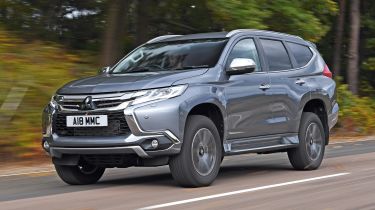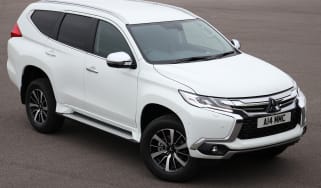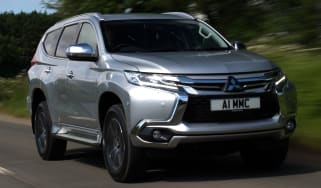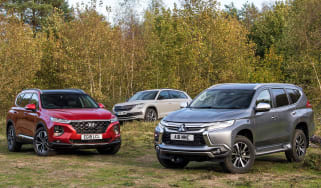Mitsubishi Shogun Sport (2018-2021) review
Mitsubishi reintroduces its seven-seat Shogun Sport SUV to the UK, but it lags behind key rivals in many areas

Just so you know, this is an older review of the 2018-2021 Mitsubishi Shogun Sport. If you are interested in information about the best large SUVs, please follow the link provided.
The Mitsubishi Shogun Sport is not alone in offering seven seats with strong off-road capability in the SUV segment, but it demands too many compromises on account of its humble pick-up truck origins. Delivering a compromised driving experience with disappointing fuel consumption from an unrefined engine, the Shogun Sport is neither cheap to buy nor run and lags behind its rivals in many areas. Adept in tough conditions and capable of carrying seven occupants with space to spare, the Shogun Sport fails to distance itself sufficiently from its L200 stablemate and does not make a strong case for itself despite generous equipment levels.
Mitsubishi introduced the Shogun Sport late in 2018, following a strong period of success for the brand with its Outlander PHEV and Eclipse Cross SUVs. With the brand seeking to continue that success and enjoy the boom in popularity of SUVs of all sizes, the latest Shogun Sport was developed using the bare bones of its long-serving L200 pick-up as a basis.
These origins give the Shogun Sport distinctive characteristics more in line with traditional 4x4 vehicles than modern Tarmac-focused options. It has a high-riding stance even compared with other SUVs of a similar size, and although it benefits from a more sophisticated rear suspension than its L200 sibling, it retains much greater off-road ability than the competition. The trade-off for this ability is that the ride quality is compromised, providing less comfort and steering precision than most rival offerings.
Available in a single bodystyle with two trim levels, the Shogun Sport is comprehensively equipped in either form with no options available on either model. Standard equipment includes climate control, leather seats and a reversing camera, while the top specification 4 model adds adaptive cruise control, additional safety systems and electric operation and heating for the front seats.
The range is powered by a single engine and transmission option, a 2.4-litre four-cylinder diesel paired with an eight-speed automatic gearbox also derived from that fitted to the L200 pick-up. The Shogun Sport is fitted as standard with four-wheel-drive, which also offers selectable modes including two- or four-wheel-drive and high or low range operation - a rarity in this sector.
Most of the Shogun Sport’s key rivals are more road-biased, with cars like the Hyundai Santa Fe, Skoda Kodiaq and Nissan X-Trail delivering greater refinement and better interior quality. The SsangYong Rexton takes a similar approach the the Shogun Sport with similarly rough-and-ready underpinnings, but counters this with an attractive value-for-money price point.









